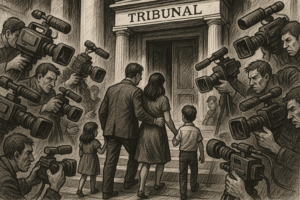The importance of criminal defense transcends individual cases. From the orators who defended citizens in the Roman Republic to the digital hearings of the 21st Century, the defense bar has stood between arbitrary punishment and legitimate justice. Without adversarial debate, Brazilian Criminal Law—and every legal system—would stagnate. Each well-argued acquittal renews public trust in due process; every rigorous defense expands the catalog of guarantees that safeguard society as a whole.
Challenges of the Criminal Defense Lawyer
Practicing criminal law in Brazil means walking an ethical tightrope while carrying the weight of someone else’s liberty. Defense counsel shares the client’s anguish, yet must withstand media pressure and frequent misinterpretation of the lawyer’s role. Attacks on professional prerogatives test the very core of the rule of law: when defense rights are curtailed in an unpopular case, the constitutional shield that protects everyone becomes thinner for all.
Innovation: Defense Theses That Reshape the Law
The importance of criminal defense also lies in its capacity to innovate. Whether challenging the chain of custody of digital evidence or framing new arguments on plea negotiations, Brazilian defense lawyers routinely push the boundaries of Criminal procedure in Brazil. Groundbreaking theses first dismissed as “creative” often mature into binding precedents that inspire reforms—proof that progress in Brazilian Criminal Law is forged in the heat of contradiction.
Criminal Defense and Brazil’s Democracy
A democracy survives by honoring the right to an effective defense. The 1988 Constitution codified this principle, but it is the daily work of criminal advocates that breathes life into those clauses. When a habeas corpus exposes unlawful restraint, the benefit radiates far beyond the petitioner. The defense lawyer is, in this sense, an institutional actor: protecting one person today to protect everyone tomorrow.
Conclusion: Why the Profession Must Be Valued
Recognizing the importance of criminal advocacy means valuing dissent, qualified debate, and the ongoing refinement of fundamental rights. Investing in defense counsel—through professional training, institutional respect, and adequate resources—strengthens the moral backbone of Brazil’s justice system. In a polarized world, the criminal lawyer remains a beacon of procedural fairness, ensuring that justice in Brazil is not merely done but seen to be done.



